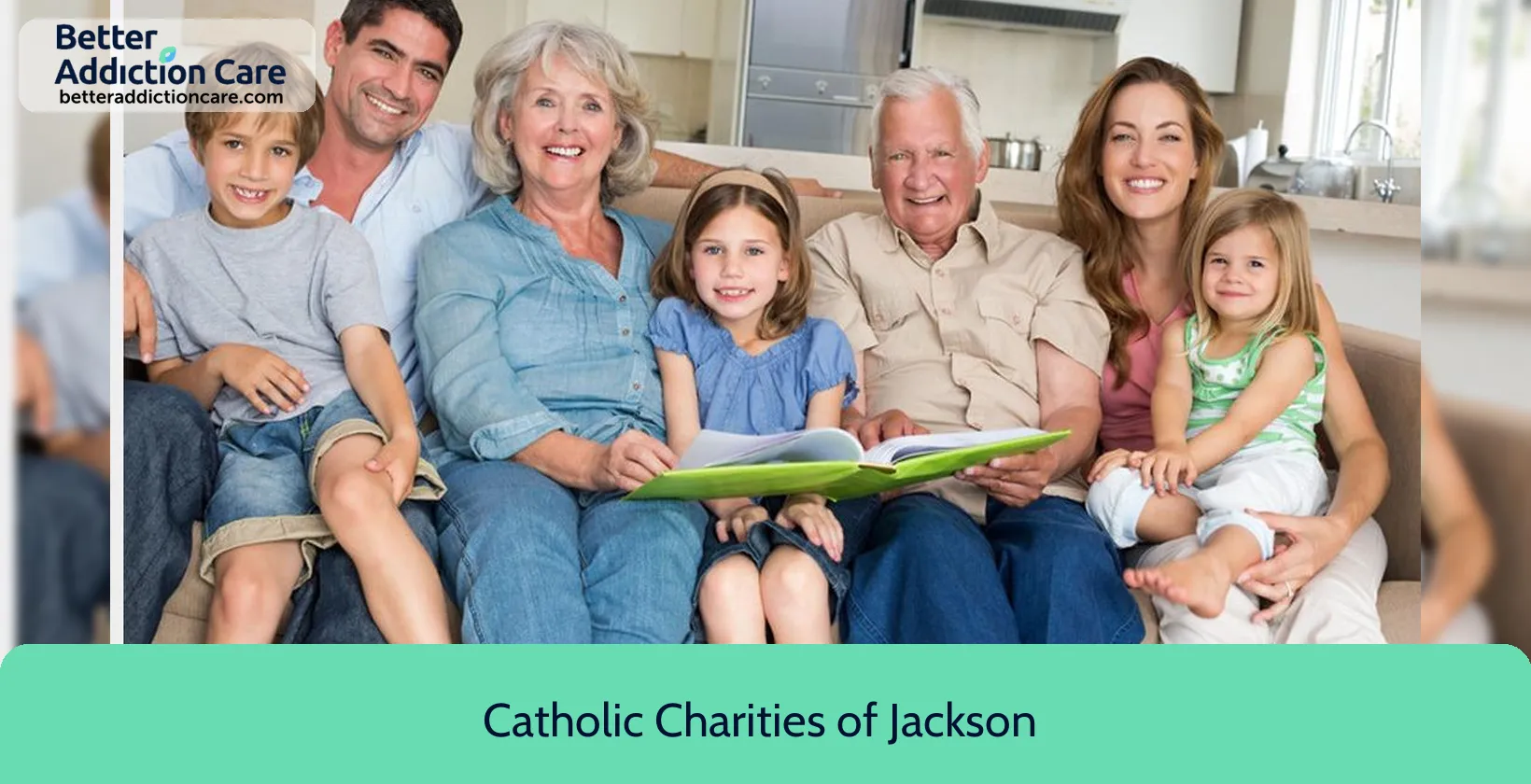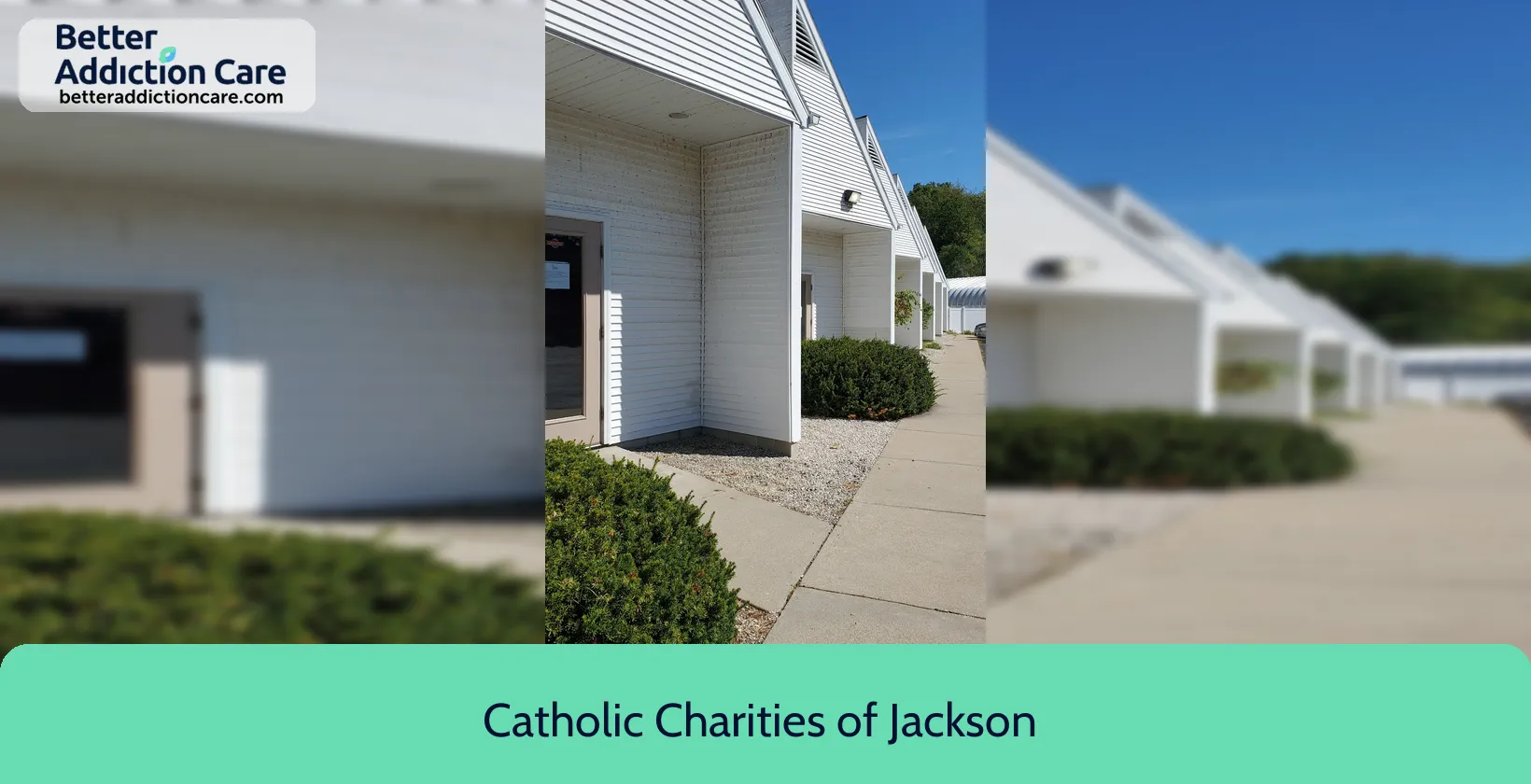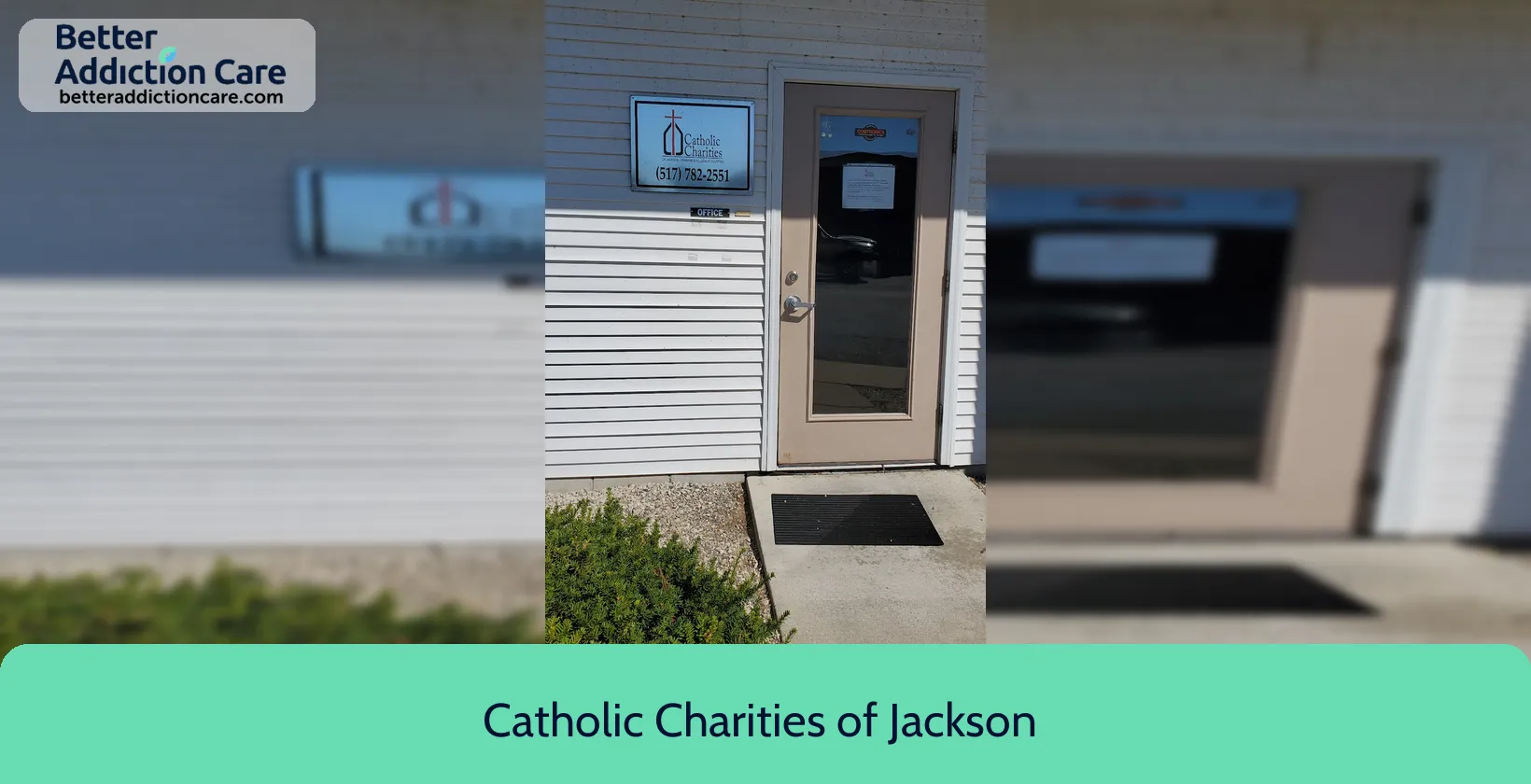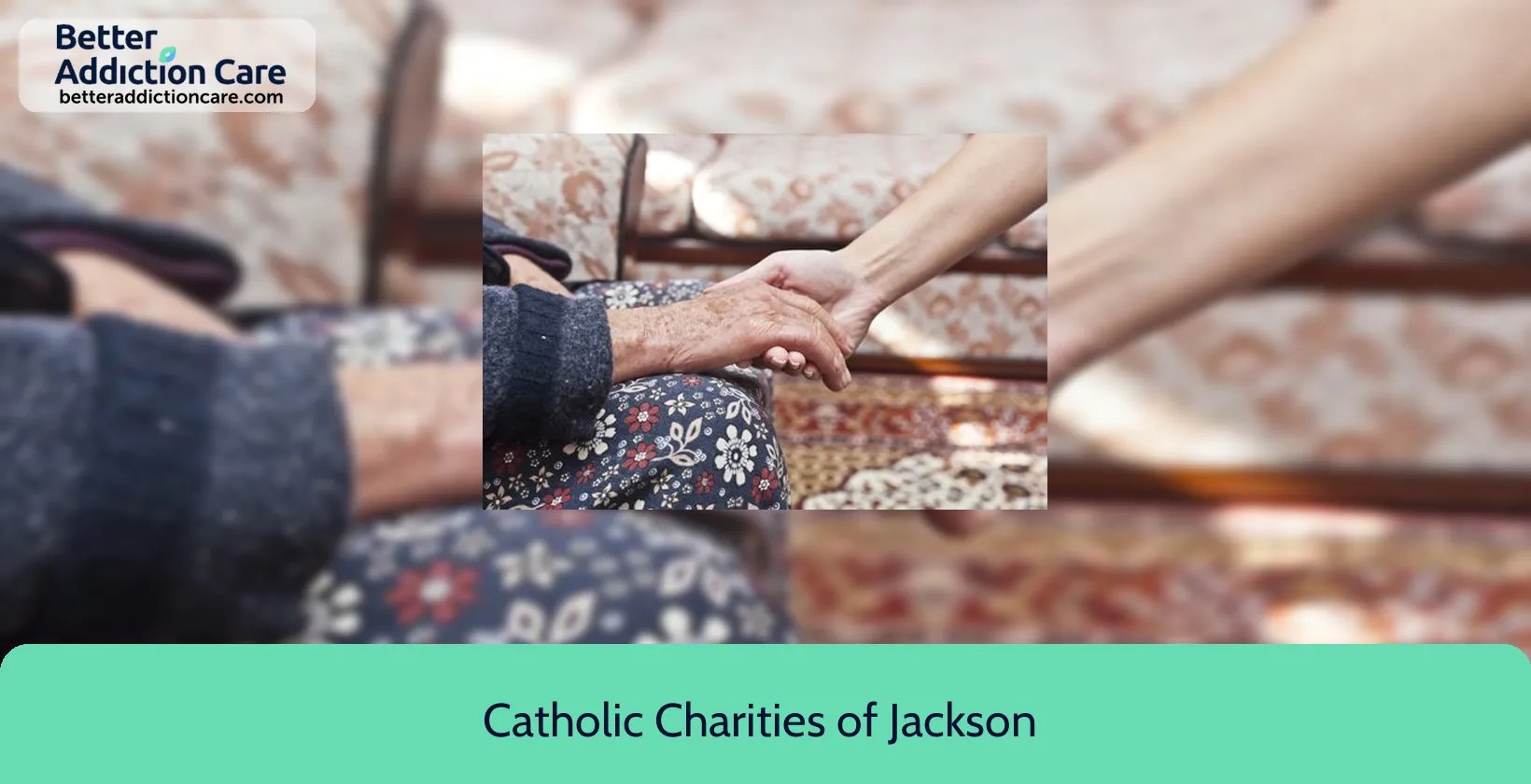Catholic Charities of Jackson - Lenawee and Hillsdale Counties
Overview
Catholic Charities of Jackson - Lenawee and Hillsdale Counties is a mental health treatment center for people seeking treatment near Jackson County. As part of their treatment modalities for recovery, Catholic Charities of Jackson - Lenawee and Hillsdale Counties provides couples/family therapy, group counseling, and cognitive behavioral therapy during treatment. Catholic Charities of Jackson - Lenawee and Hillsdale Counties is located in Jackson, Michigan, accepting cash or self-payment for treatment.
Catholic Charities of Jackson - Lenawee and Hillsdale Counties at a Glance
Payment Options
- Cash or self-payment
- Medicaid
- Medicare
- State-financed health insurance plan other than Medicaid
- Private health insurance
Assessments
- Screening for tobacco use
- Comprehensive mental health assessment
- Comprehensive substance use assessment
Age Groups
- Children/adolescents
- Young adults
- Adults
- Seniors
Ancillary Services
- Intensive case management
- Case management service
- Court-ordered outpatient treatment
- Education services
- Family psychoeducation
Highlights About Catholic Charities of Jackson - Lenawee and Hillsdale Counties
6.80/10
With an overall rating of 6.80/10, this facility has following balanced range of services. Alcohol Rehabilitation: 8.00/10, Drug Rehab and Detox: 6.00/10, Insurance and Payments: 6.00/10, Treatment Options: 7.21/10.-
Alcohol Rehabilitation 8.00
-
Treatment Options 7.21
-
Drug Rehab and Detox 6.00
-
Insurance and Payments 6.00
Treatment At Catholic Charities of Jackson - Lenawee and Hillsdale Counties
Treatment Conditions
- Alcoholism
- Mental health treatment
- Substance use treatment
- Co-occurring Disorders
Care Levels
- Outpatient
Treatment Modalities
- Couples/family therapy
- Group counseling
- Cognitive behavioral therapy
- Dialectical behavior therapy
- Integrated Mental and Substance Use Disorder treatment
Ancillary Services
Languages
- Sign language services for the deaf and hard of hearing
Special Programs
- Clients who have experienced trauma
- Persons with post-traumatic stress disorder (PTSD)
Get Help Now
Common Questions About Catholic Charities of Jackson - Lenawee and Hillsdale Counties
Contact Information
Other Facilities in Jackson

7.57
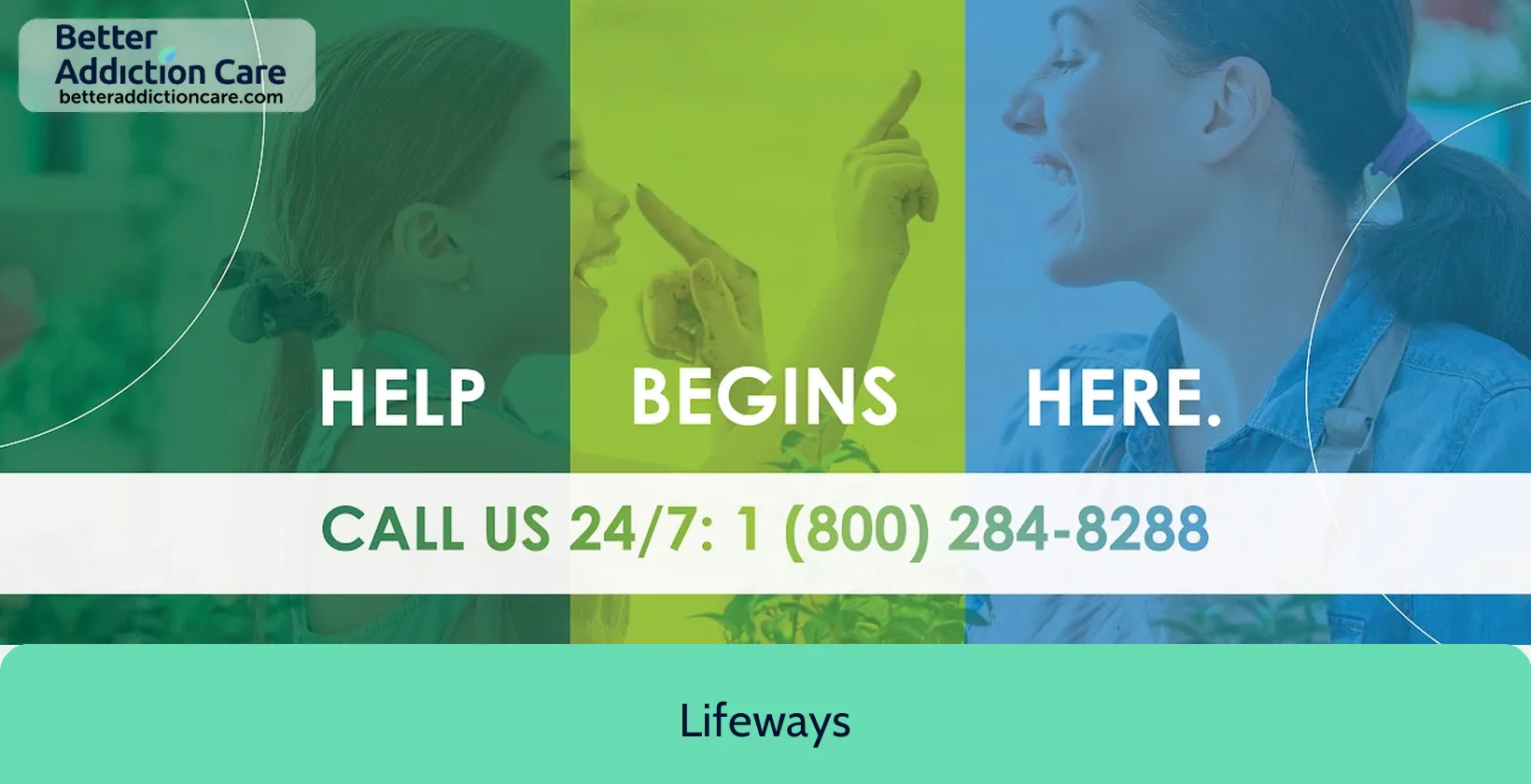
7.27
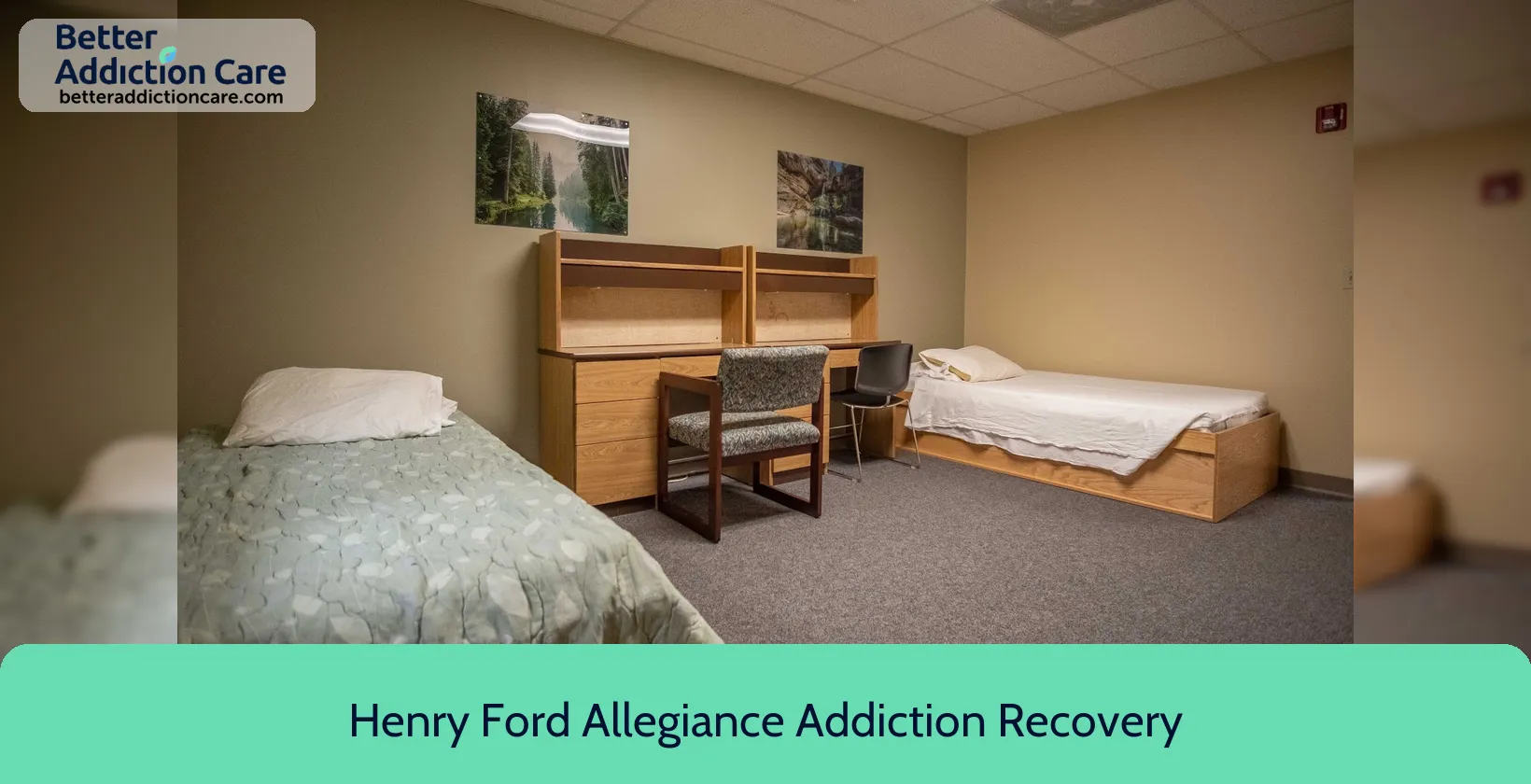
7.14
DISCLAIMER: The facility name, logo and brand are the property and registered trademarks of Henry Ford Allegiance Addiction Recovery Center, and are being used for identification and informational purposes only. Use of these names, logos and brands shall not imply endorsement. BetterAddictionCare.com is not affiliated with or sponsored by Henry Ford Allegiance Addiction Recovery Center.
